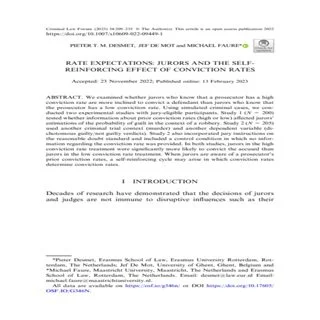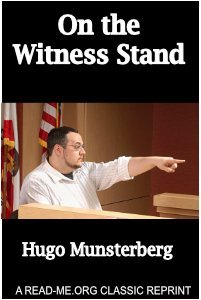By Pieter T. M. Desmet, Jef De Mot & Michael Faure
We examined whether jurors who know that a prosecutor has a high conviction rate are more inclined to convict a defendant than jurors who know that the prosecutor has a low conviction rate. Using simulated criminal cases, we conducted two experimental studies with jury-eligible participants. Study 1 (N = 200) tested whether information about prior conviction rates (high or low) affected jurors’ estimations of the probability of guilt in the context of a robbery. Study 2 (N = 205) used another criminal trial context (murder) and another dependent variable (dichotomous guilty/not guilty verdicts). Study 2 also incorporated jury instructions on the reasonable doubt standard and included a control condition in which no information regarding the conviction rate was provided. In both studies, jurors in the high conviction rate treatment were significantly more likely to convict the accused than jurors in the low conviction rate treatment. When jurors are aware of a prosecutor's prior conviction rates, a self-reinforcing cycle may arise in which conviction rates determine conviction rates.
Crim Law Forum 34, 209–235 (2023).




